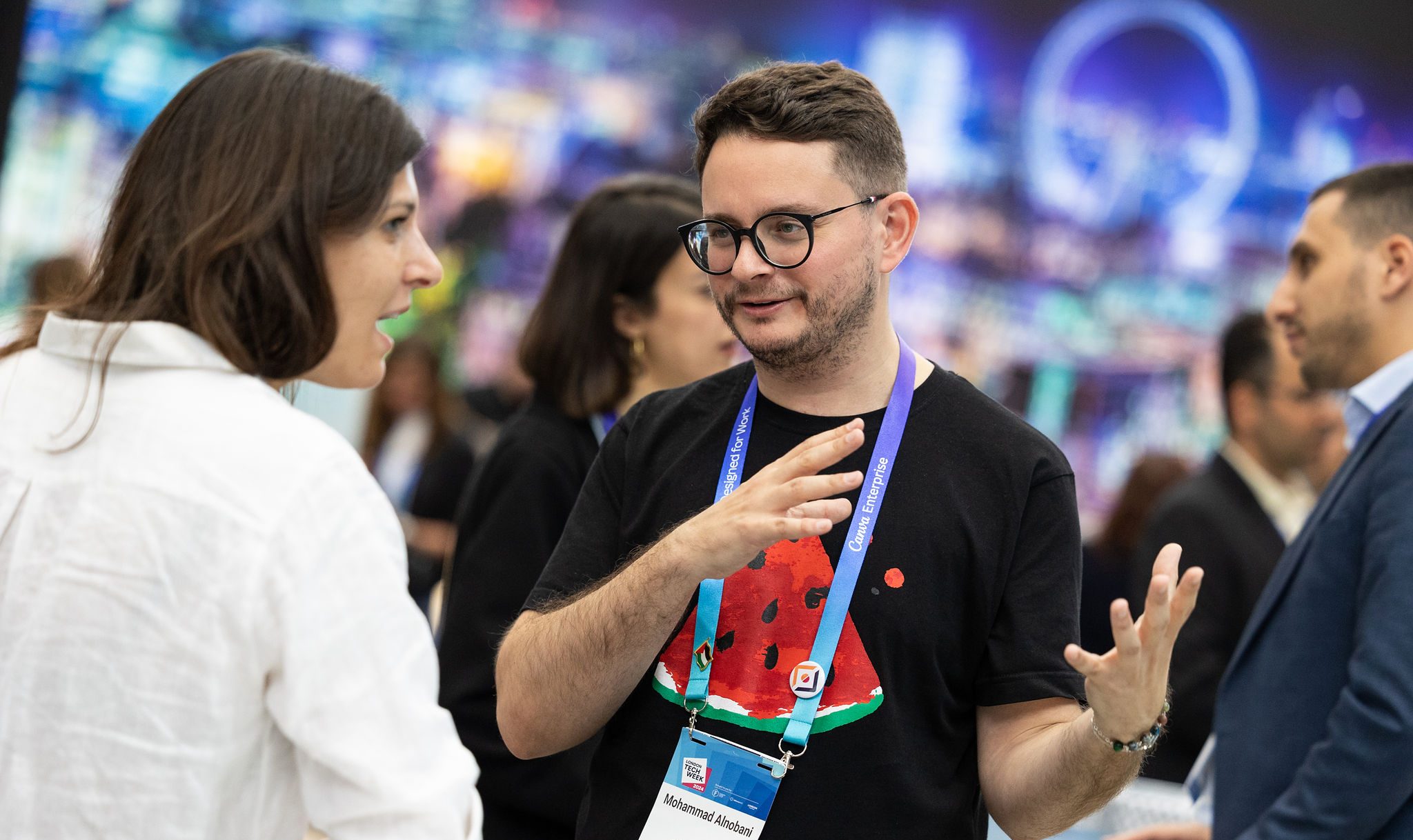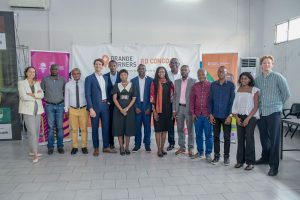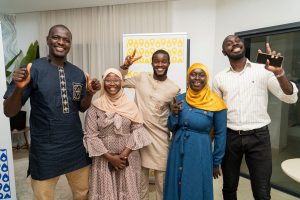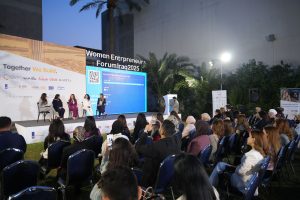From identifying a gap in the market to creating a vibrant platform for authentic Arab images, Mohammad Alnobani and his co-founder Raya Fatayer from The Middle Frame have come a long way. We reflect with Mohammad on their journey so far, their future plans, and how support from Orange Corners Palestinian Territories was crucial in turning their vision into reality.
Hi Mohammad! Could you introduce your business, The Middle Frame?
The Middle Frame is a community-driven platform that provides access to a diverse and authentic Arab image library. My co-founder Raya and I met during an entrepreneurship fellowship. Raya, with her background in photography, identified the need for such an image library. With my experience in advertising, I recognised this gap. The Middle Frame not only fill this gap, but also includes photographers from around the region in this mission.
We started The Middle Frame in 2021. In the last three years, we successfully launched a marketplace for commercial and editorial Arab images that are legal and licensed for sale. Additionally, we introduced a feature that enables users to send targeted requests to photographers. Our efforts resulted in securing over $200,000 in investments and approximately $70,000 in grants. Despite facing challenges in the Palestinian market since October 2023, we initiated testing in markets such as Jordan, Egypt, and more recently, the UAE.
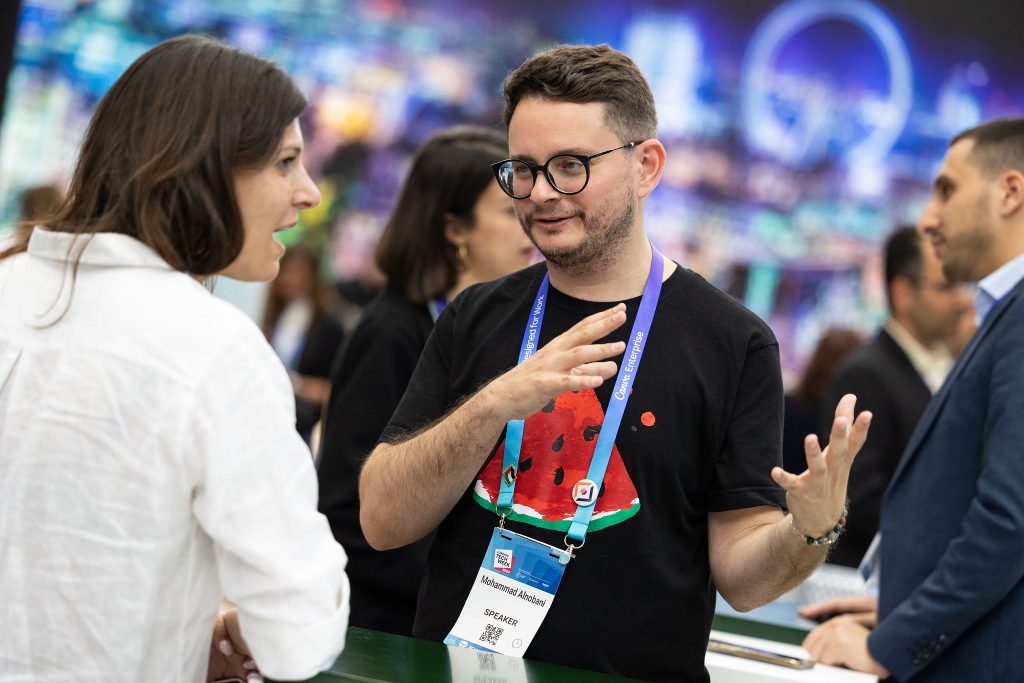
Can you take us back to the moment you decided to join Orange Corners?
When Raya and I decided to start The Middle Frame, we were a bit lost to be honest. Even though we just came back from a fellowship in entrepreneurship, we didn’t know where to start. That’s why we started connecting with the local startup community in Palestine. That’s how we met Majd from Flow Accelerator. She told us Orange Corners was coming to Palestine, and encouraged us to apply with whatever we had. Any traction, the most basic MVP.
This was the opportunity we needed. The chance to build our skills through an incubator programme, guidance to lead us through the early stages. It made such a difference. Back then, we were new to the startup ecosystem. Orange Corners was a great opportunity to learn from others: from mentors, from businesses that had already succeeded, had already gotten investments.
Orange Corners was a great opportunity to learn from others: from mentors, from businesses that had already succeeded, had already gotten investments
Mohammad Alnobani, The Middle Frame
How would you compare The Middle Frame at the start and the end of the programme?
Orange Corners was the perfect push towards the market for us. We managed to validate our idea, get additional traction. Before Orange Corners, our MVP wasn’t even working yet. Towards the end of the programme, we had a proper MVP that was already on the market. The number of photographers that had heard of the platform had grown rapidly in the course of the programme, and towards the end of the programme buyers could already sign up and search for the images they needed.
Orange Corners gave us quite a bit of exposure in the local ecosystem. People knew we were serious about our business. Not just other founders, but also other enablers in the ecosystem. People started hearing about us left and right. They started to know who Mohammad is, what The Middle Frame does.
Most incubation programmes want you to focus on the local market, but we knew from the beginning that the local market would be too small for us. The Orange Corners Palestinian Territories team was very supportive of our initial focus on the Egyptian market.

Have you also been in touch with the Orange Corners Egypt team?
Not at the same time, but later yes. Majd connected us to the Orange Corners Egypt team. They were very supportive, connected us with people in the Egyptian ecosystem. It was a good push towards other people. Once we started going to summits and conferences in Egypt, connections were already made.
Do you feel you also benefitted from Orange Corners as a startup founder?
Yes, especially since this is our first time as startup founders. When we started Orange Corners, we had confidence in our idea, but we lacked the skills. We needed someone to lead the way. At Orange Corners, they pushed that confidence out. Especially when it comes to pitching, talking to others, how to organise everything in our head. I used to consider myself a very anxious public speaker, so I had no idea I’d be great at pitching honestly.
I didn’t expect myself to be the kind of person that tries to keep in touch with everyone either, but I’m much more active towards the Orange Corners community than I thought I’d be. In such a small ecosystem, we keep running into each other anyway. The local team in Palestine was really important in creating this community. They opened their offices to us whenever we wanted to drop by or meet them.
There are the skills you don’t learn by attending workshops. Sometimes you just need to be around people and hear stories from those who already succeeded or failed. Orange Corners came at the right time. There’s a lack of programmes like this in Palestine, and people felt the need for something to belong to.
I was chosen as an alumni ambassador, which helped me keep in touch with the next cycles. I don’t consider us as a mature startup yet, but when I look at the past two years we have so many lessons learned to share already! It feels more like five years than two!
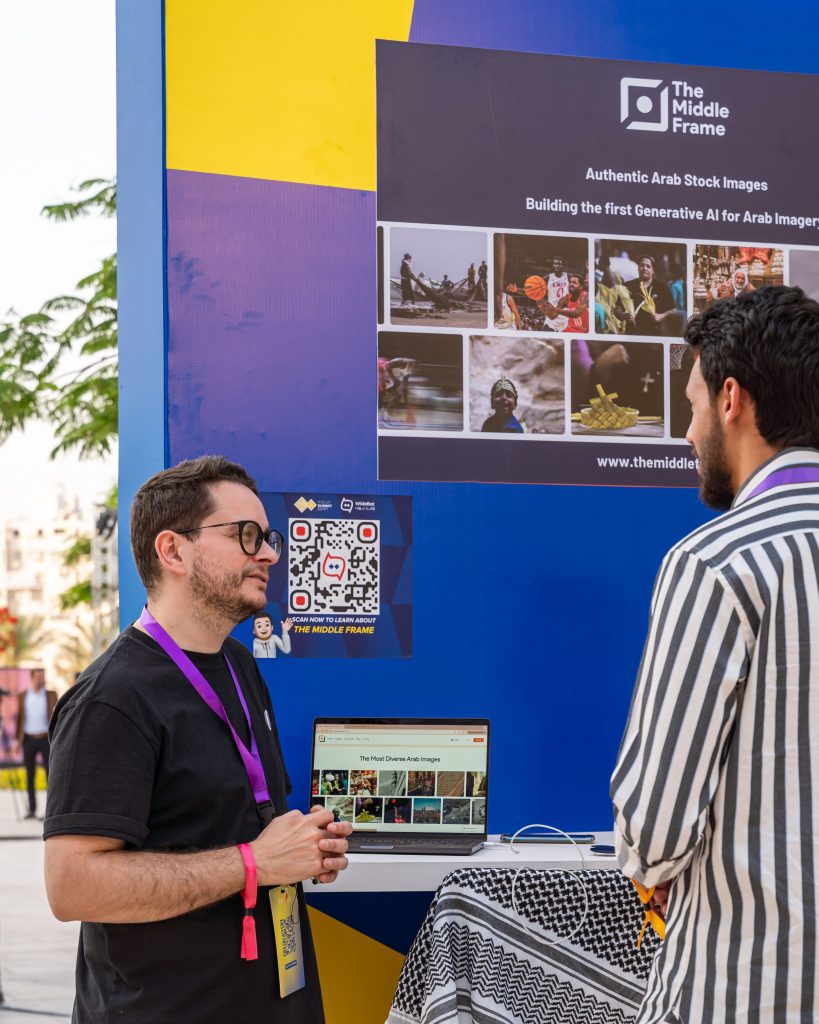
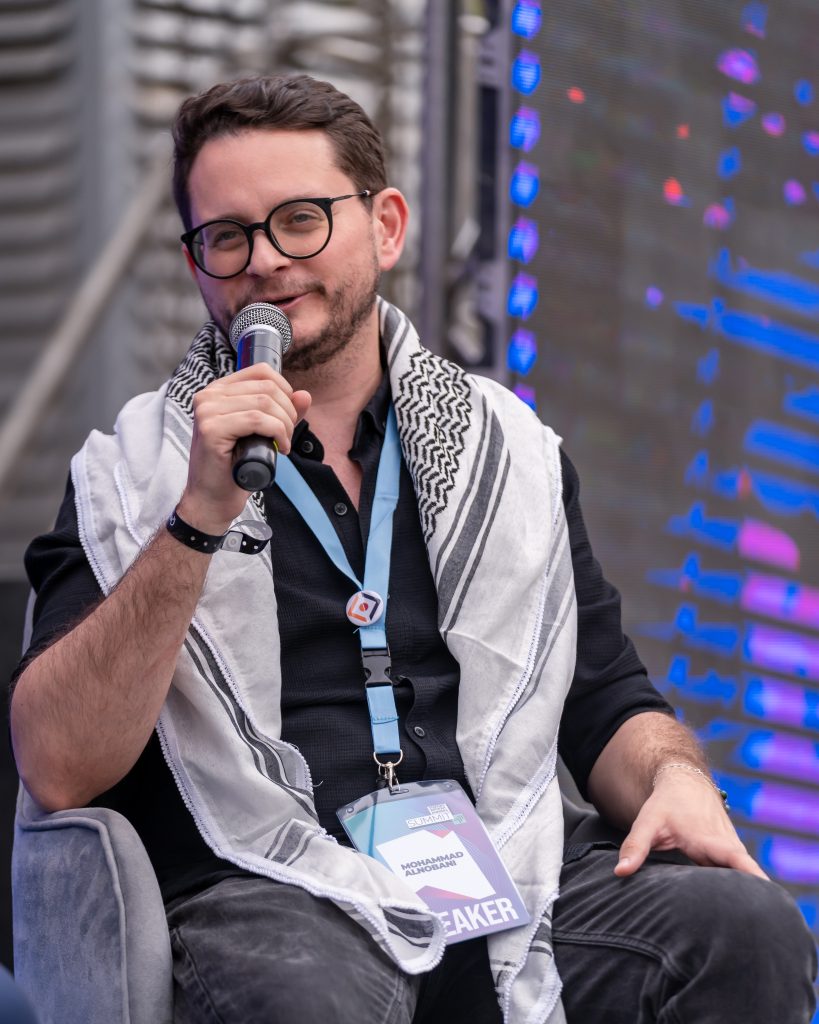
What happened to The Middle Frame after Orange Corners?
All of a sudden we were back on our own again. What’s so useful about Orange Corners, and incubation programmes in general, is that there’s proper guidance. When you wake up, you know what you need to do. There’s a workshop, there’s homework to follow up on. So we started to check out other programmes, such as Gaza Sky Geeks and IPSD, for additional skills, to keep the guidance, and also as a source of income to keep The Middle Frame up and running. We needed those grants for marketing, to improve the MVP. Things really started working out for The Middle Frame. We were getting requests, subscribers. That is, until October.
On the 7th of October, I got stuck in Jordan. While I was stuck in Amman, a Jordanian lawyer I met through Orange Corners texted me, asking for our pitch deck to share it with someone. That turned out to be Flat6Labs. They offered us an investment, along with a chance to join their acceleration programme. Considering the situation back home, we kept hearing left and right that startups needed to find an exit way to survive. This opportunity was right in front of us.
Back then we had around 8,000-10,000 images uploaded, about 1500 photographers on the platform, but we were still trying to figure out a steady revenue stream. We were selling commercial images, creative images. After discussions with Flat6Labs we realised we should also introduce editorial images, news images, sports images, celebrities. And last year we also added an option to hire our community of photographers. This created good traction, as photographers became more excited and more loyal to the platform as it offered them the opportunity to be hired, and not just sell their stock images. Because stock images are a great source of passive income for them, but relatively low in revenue – they can’t depend on it.
And recently we’ve been exploring generative AI. AI is potentially risky for The Middle Frame, because although commercial and creative images aren’t immediately replaceable by AI, AI could take a good portion of the market. So we thought we might as well try to take advantage of this trend. We started testing AI tools and we soon realised that generative AI can’t really generate Arab images due to the lack of data. There simply isn’t enough data to base AI models on. We hesitated a little to jump into this gap, but at the end of the day the product that we’re offering is the same: authentic Arabic images.
There’s quite a bit of interest in this. Very early on, around the time we were in Orange Corners, we were already approached by a US company for Arab data sets for example. Since then, we’ve become quite well-known within the AI ecosystem for our authentic Arah imagine data sets. They can be used in different fields for different purposes, from security and surveillance to image recognition and generative AI.
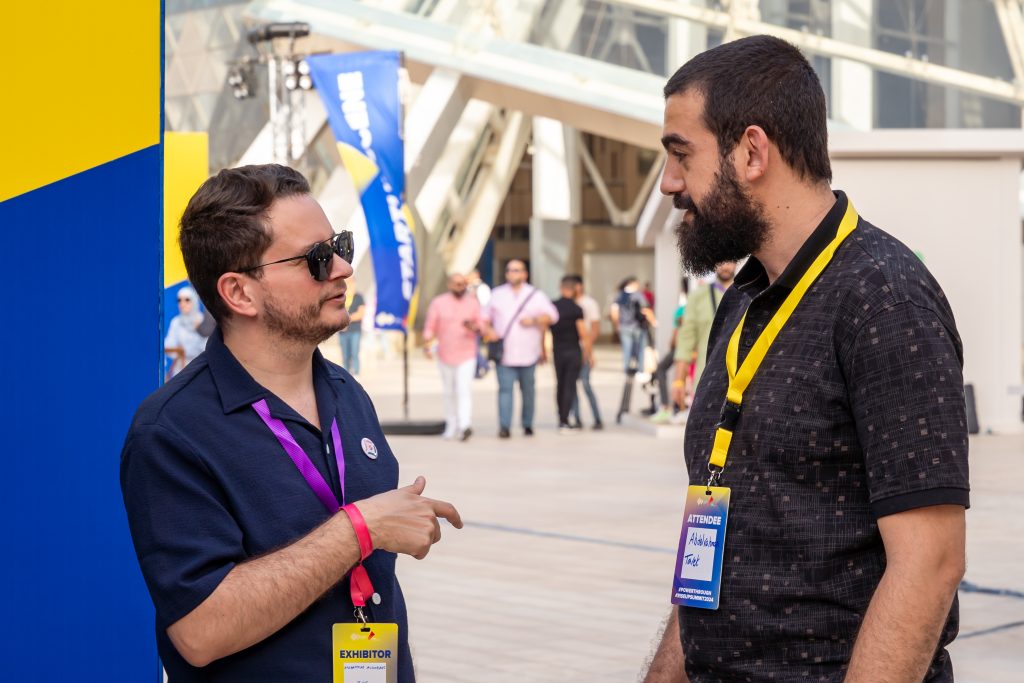
Did you encounter any major challenges so far?
It’s not always been an easy road. We’ve encountered several challenges along the way, including a decline in sales in the Palestinian market, navigating economic challenges in the Egyptian market, and more recently, the task of building a library to cater to the UAE market. Fundraising has been particularly challenging for a Palestinian startup, especially in the current global climate. Nonetheless, we’ve learnt that patience is crucial in overcoming these obstacles.
Reaching stability was also challenging. We focused on advertising agencies first, but many told us to come back when we had more images. Many leads for investments didn’t work out either. They told us to come back when we had more traction, when we were more stable. But as an online marketplace, you can’t really get to that stage of sustainability without investment. You need that investment to create supply and demand. Some clients really believed in The Middle Frame, trusted us when nobody else did. We lived day by day in the beginning, fully committed to The Middle Frame, no second job or anything. There have been moments when we were running very, very low on money. $200 in our account, trying to figure life out, asking friends and family for investments to survive.
But our toughest moment so far was when Raya and I changed positions in July last year. It’s a cliche, but it’s so important to choose your co-founders well. She was CEO, I was handling the operations. But on a day to day basis, what was happening on the ground was the opposite. We didn’t care about titles, but investors do. They want to talk to the CEO. This was a scary conversation that could’ve broken the team, but we realised this was the conversation we needed to have. And things have been better ever since.
Fundraising has been particularly challenging for a Palestinian startup, especially in the current global climate
Mohammad Alnobani
Do you feel you’ve reached stability now?
We’re very close. We know that every month sales happen and we’re very close to covering our costs. Hopefully going into the AI industry will fasten this process of getting to sustainability.
What do your future plans look like?
Right now, we’re focusing on three things: business development, partnerships and sales. Our focus has been regional since the beginning, but with our recent focus on AI we’re also looking at the US and European markets. Last month we for example attended London Tech Week, to connect with AI companies. And we found out there’s quite a few industries interested in our products. After all, ethical data sets and reducing bias in AI are hot topics.
For the next two years, we want to focus on generative AI and supporting tools for our clients, selling and licensing data sets. The next stage would be videos. We’re already working on this, to make sure we’re starting to collect data from videos ahead of time!
For the next two years, we want to focus on generative AI and supporting tools for our clients, selling and licensing data sets
Mohammad Alnobani
To round it off, what advice would you give aspiring startup founders?
First of all: remember your purpose. Every endeavour, whether it’s a business or a project, serves a purpose – to solve a problem that matters to you. Also: reflect on the bigger picture. Take a step back every now and then and ask yourself why you’re doing what you’re doing. Consider what impact it’ll have on people. And stay motivated. Keeping the broader vision in mind will fuel your determination and drive, motivating you to persevere through challenges. And finally: passion drives progress. Your passion for solving problems and making a meaningful difference is what sustains your efforts and keeps you moving forward.
Become The Middle Frame’s next customer:
Website
LinkedIn
Facebook
Instagram

